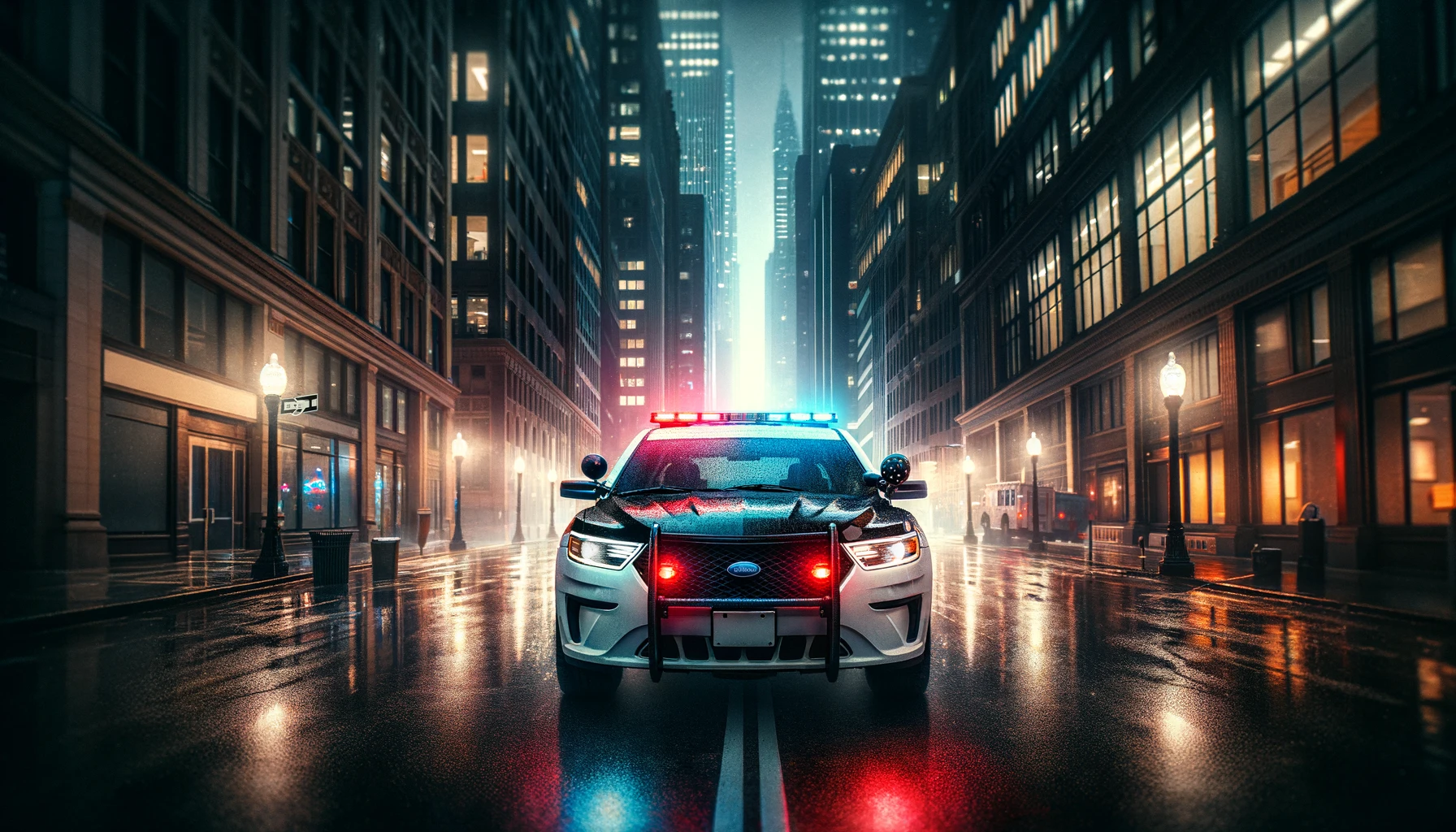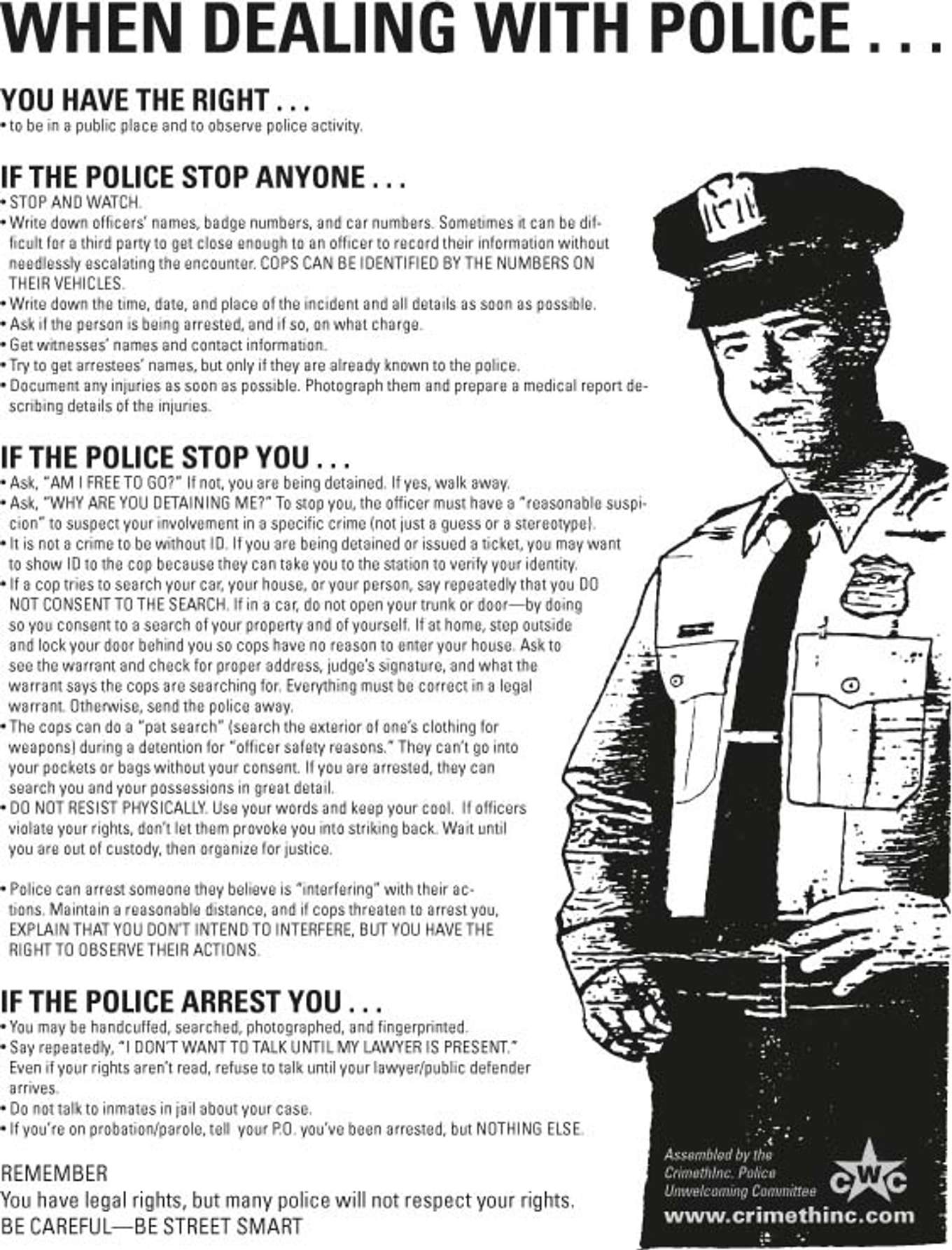
How To Deal With The Police After A Fight
Surviving an assault on your person, or "winning a fight", aren't your only worries, because it is highly probable that you will be dealing with the police and/or legal system.
You could win a physical battle, but loose the legal war, both criminal and civl - if you do not play your cards right and keep a cool head.
When a street fight or assault occurs, there are several factors that will likely trigger the attention of the police: noise, broken or damaged property, disturbed neighbours or businesses, and obvious signs of physical trauma.

Often too, these sorts of incidents will happen in an instant, despite your best efforts of situational awareness and avoidance.
Since it is the job of the police to act on reasonable suspicions of breaches of the criminal code, you can bet they will be asking you questions if you get into a fight in public.
Factors Police Will Look For After An Assault
The use of force by you - was it reasonable? Did you use reasonable force in protecting yourself? In determining whether or not you have a legitimate claim to self defense, they will determine if the force you used to defend yourself was proportionate or promximate to the force or threat of immanent force posed against you.
For example, in practical terms, a slap is equal to a slap, a punch to a punch, etc. If all the other person did was give you a shove, you would not be justified in throwing them to the ground with a Judo throw and stomping their head to the ground. This is what the law would term "excessive force", which will invalidate your claims to "self defence" - guaranteed!
Was there a "disparity of force" used against you? If you are attacked by a larger, younger attacker or multiple attackers, it bodes in your favor with your claim that you had to use force to defend yourself against immediate physical harm or even death. It is reasonable, given the circumstances that anyone in your situation would fear for their risk of death or serious bodily harm is another thing that works in your favor.
Were there aggravating circumstances? Is your attacker known to you? Often "prior acts" will help you, if the person also has a history of stalking or harassing you.
Did you do all you could to reasonably avoid a fight? Could you have run? In some jurisdictions this is referred to as having "reasonable means of egress".
For example if you got out of your car to cross the street and engage in an argument with the other person(s), it would be more difficult for you to assert that you feared for your safety, as you did have means of egress/exit and chose not to take it, instead putting yourself at risk. So be very mindful of this sort of thing, besides, it is never in your best interests.

All of these sorts of criteria will help the police filter out whether or not you acted "reasonably", ie, would most other people have done the same as you? The word "reasonable" is the middle word in interpretive case law.
Keep it in mind, and it could save your ass from being thrown in the slammer or being sued, or both!
Dealing With The Police After A Fight
In a streetfight, there is no "winner" or "loser". Especially if the "winner" goes to jail, and/or civil court, and the "loser" usually ends up injured, possibly permanently, or in the trauma ward in the hospital - or dead.
Keep this in mind when dealing with all the crazies out there. It is not worth it, to get into a potentially life-changing conflict, over trifles or ego, when they can be avoided. Some times, you just have to let things go, unless of course you or your family are in real danger.
When the police show up, be polite and respectful. Do not act aggressively and do not make a statement! (more about that in a bit) If your attacker is injured, do not gloat or act proud of yourself. Keep you emotions in check! Emotional intelligence is your best friend.
Do not make a statement to police and invoke your right to remain silent! You have no legal obligation to speak to the police or make a statement. You will be under extreme stress and possibly duress as well. It is very easy in times like that to say the wrong thing that a prosecutor will seize on and use against you.
They will come to work the next day, your emotional statement to the police and cherry-pick words and out of it, stringing them together to construct a narrative which they will use against you. Thus making a statement could be thought of as giving a gunman bullets to shoot you with!
It also bears repeating: the best way to deal with the police after a fight or assault is to avoid getting into on in the first place!
Police may employ tactics that can feel intimidating. It's important to remain composed, especially since situations leading up to interactions with police can be stressful, particularly when surging with adrenaline after an incident like an assault or violent encounter.
You have the right to refrain from answering police questions. Your primary duty is to safeguard your interests and those of your family, not to assist in police investigations.
If You're Facing Arrest
In the aftermath of an incident, consider noting down its specifics, such as date, time, place, witnesses, involved agencies, badge numbers, mentioned names, questions posed, items confiscated, any damage, and injuries.
This record could be useful, though caution is advised as its discovery could pose risks. To enhance its confidentiality, label it as “confidential attorney/client communication,” along with your lawyer's name at the document's start.
If The Police Are At Your Home
- Police must possess a judicially signed arrest warrant, properly signed and dated specifying an individual at your residence.
- You're not obliged to confirm the presence of the named individual.
- If police reasonably believe the named individual is within and it's their residence, they may enter without consent to conduct a search.
- They're permitted to search hiding-capable areas. Items in plain sight that seem illegal or indicate criminal activity can be seized.
- A more comprehensive search of the arrest site inside is allowable.
If the individual named in the warrant chooses to surrender outside, this could restrict or negate the need for an interior search. - It's imperative for anyone arrested to fully utilize their right to silence, except for providing booking details (name, date of birth, address). Assert this right by stating, “I choose to remain silent. I request a lawyer.”
If Subjected To A Police Search
Refrain from signing any documents without consulting a lawyer. Providing false information to law enforcement can lead to criminal charges. The safest approach is to avoid interaction and whatever you do, never ever touch the police.
Because of the difficulty in prosecting police for criminal assaults and excessive force use during arrests, and factors such as "qualified immunity" they will be able to have an easier time evading successful prosecution. Also, having a service pistol at their side, makes "the officer feared for his safety" much more plausible, should you touch them in any way.
What To Do If You Are Arrested By Police
Likely the best information available online is the lecture by Regent Law Faculty Professor, James Duane and the from Flexyourrights.org.
If you are an American, you are protected by the Fifth Amendment, which the Founding Fathers wrote into the US Constitution to protect the individual from tyranny from agents of the state. The video below outline the dangers of self-incrimination when faced with encounters initiated by the police.
Fifth Amendment: No person shall be held to answer for a capital, or otherwise infamous crime, unless he or she is on presentment or indictment of a Grand Jury, except in cases arising in the land or naval forces, or in the Militia, when in actual service in time of War or public danger; nor shall any person be subject for the same offense to be twice put in jeopardy of life or limb; nor shall be compelled in any criminal case to be a witness against himself, nor be deprived of life, liberty, or property, without due process of law; nor shall private property be taken for public use, without just compensation.


